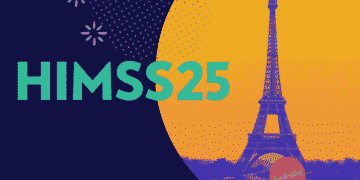It didn’t arrive with fireworks. No viral catchphrases. No sci-fi theatrics. But what Google quietly unveiled at I/O this year may end up being the most disruptive AI rollout of the decade — because it doesn’t ask users to change their behavior. It simply integrates itself, silently, into their everyday lives.
This is Gemini AI, now baked into everything from your Google Search bar to your smartphone’s camera lens. And while the headlines focused on flashy demos and synthetic voices, the real story lies in the subtle transformation of how we ask questions, seek truth, and even perceive privacy.
Search Is No Longer a Search | It’s a Conversation
For years, Google was your go-to library. Now, it’s your tutor, research assistant, and sometimes, an overconfident know-it-all.
With the introduction of AI Mode in Search, users are experiencing something new: search summaries that think with them, not just for them. Type in a complex query — say, “Compare the effects of intermittent fasting on ADHD symptoms” — and you won’t get a dozen blue links. You’ll get a concise answer, supported by sources, with suggestions on what to ask next.
But beneath that helpful tone lies a deeper question: What if it’s wrong?
Insiders at Google confirm that hallucinations and AI’s tendency to make things up are still possible. “This is a step forward, not a finish line,” one developer told Insight Tech Talk, requesting anonymity. “We’re training the system to say ‘I don’t know’ more often. But that’s hard when confidence is coded in.”
Project Astra | When Your Phone Starts Observing Like You
Arguably the most jaw-dropping demo of I/O 2025 came not from code, but from camera.
Project Astra, Google’s next-gen visual AI agent, lets users point their phone and ask real-world questions about objects, spaces, even sounds. It’s a kind of real-time perception layer, where your phone acts more like a partner than a passive device.
Try this: hold your phone up to a table of tangled cords and ask, “Which one is for the router?” Or point at a strange screw and say, “Do I need a special bit to unscrew this?”
Gemini’s visual understanding responds in seconds.
For some, this is pure utility. For others, it raises red flags. Is this the beginning of constant visual surveillance? Google insists that data stays local and isn’t stored but digital rights advocates are watching closely.
The Promise and Peril of “Always-On AI”
Unlike prior innovations that required user initiation, Gemini is designed to feel proactive. Smart replies, next-step suggestions, ambient awareness it doesn’t just respond. It predicts.
This makes Gemini extraordinarily helpful. But also. unsettling.
“People have a right to know when they’re being listened to,” says Priya Deshmukh, a digital ethics researcher at Stanford. “And they need to understand that AI doesn’t understand context the way we do. It can be summarized. It can infer. But it doesn’t feel like it.”
Who Gains Most? A Shifting Power Balance
Developers and startups are already benefiting. With the new Gemini API, building AI-powered tools is faster, cheaper, and less dependent on third-party LLMs. Some companies are even porting over from OpenAI to test performance differences.
Small businesses are integrating Gemini into customer service bots, analytics tools, and even internal training apps. But what about the everyday user?
“I just wanted help writing my resume,” laughs Ankush Mehta, a 27-year-old marketing analyst from Pune. “Next thing I know, Gemini’s coaching me on salary negotiation.”
Gemini’s ability to move across contexts personal, professional, and creative is what makes it powerful. But also, potentially overwhelming.
The Ethical Abyss: Deepfakes, Bias, and the AI Mirage
With great scale comes great manipulation.
Critics warn that Gemini’s deepfake synthesis, voice mimicry, and advanced video generation tools while controlled for now could be misused at massive scale. “It only takes one rogue actor with access,” says Deshmukh.
Then there’s bias. While Google has publicly committed to transparency and fairness in training data, biases often emerge in subtle ways: in which questions get better answers, or whose language the model deems “neutral.”
And as AI becomes more agentic — capable of performing tasks independently who’s liable when it errs? That legal gray zone remains untouched.
Final Thought: More Powerful Than You Think — and Closer Than You Realize
The most important thing about Gemini isn’t what it does. It’s how quietly it changes your expectations.
You don’t expect to fact-check Google. You don’t expect your phone to be wrong. You trust. That’s where the danger and the magic lives.
In the months ahead, as Gemini Live rolls out globally and more Android users begin to speak to their phones instead of tapping them, we may find that the future of AI isn’t explosive. It’s quiet. Invisible. Woven into routines. Whispering, not shouting.
And perhaps, that’s exactly why we should pay attention.
Stay curious. Stay critical.
For more deep dives into AI, tech policy, and the human side of innovation, follow Insight Tech Talk.













































